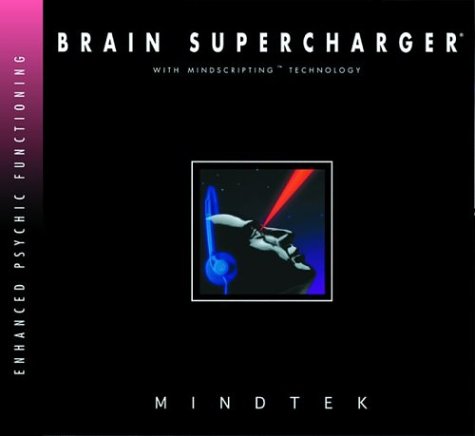Global Brain: The Evolution of Mass Mind from the Big Bang to the 21st Century | Date: 14 April 2011, 01:19
|
When did big-picture optimism become cool again? While not blind to potential problems and glitches, Global Brain: The Evolution of Mass Mind From the Big Bang to the 21st Century confidently asserts that our networked culture is not only inevitable but essential for our species' survival and eventual migration into space. Author Howard Bloom, believed by many to be R. Buckminster Fuller's intellectual heir, takes the reader on a dizzying tour of the universe, from its original subatomic particle network to the unimaginable data-processing power of intergalactic communication. His writing is smart and snappy, moving with equal poise through depictions of frenzied bacteria passing along information packets in the form of DNA and nomadic African tribespeople putting their heads together to find water for the next year.
The reader is swept up in Bloom's vision of the power of mass minds and, before long, can't help seeing the similarities between ecosystems, street gangs, and the Internet. Were Bloom not so learned and well-respected--more than a third of his book is devoted to notes and references, and luminaries from Lynn Margulis to Richard Metzger have lined up behind him--it would be tempting to dismiss him as a crank. His enthusiasm, the grand scale of his thinking, and his transcendence of traditional academic disciplines can be daunting, but the new outlook yielded to the persistent is simultaneously exciting and humbling. Bloom takes the old-school, sci-fi dystopian vision of group thinking and turns it around--Global Brain predicts that our future's going to be less like the Borg and more like a great party. --Rob Lightner
From Publishers Weekly
Bloom's debut, The Lucifer Principle (1997), sought the biological basis for human evil. Now Bloom is after even bigger game. While cyber-thinkers claim the Internet is bringing us toward some sort of worldwide mind, Bloom believes we've had one all along. Drawing on information theory, debates within evolutionary biology, and research psychology (among other disciplines), Bloom understands the development of life on Earth as a series of achievements in collective information processing. He stands up for "group selection" (a minority view among evolutionists) and traces cooperation among organismsAand competition between groupsAthroughout the history of evolution. "Creative webs" of early microorganisms teamed up to go after food sources: modern colonies of E. coli bacteria seem to program themselves for useful, nonrandom mutations. Octopi "teach" one another to avoid aversive stimuli. Ancient Sparta killed its weakest infants; Athens educated them. Each of these is a social learning system. And each such system relies on several functions. "Conformity enforcers" keep most group members doing the same things; "diversity generators" seek out new things; "resource shifters" help the system alter itself to favor new things that work. In Bloom's model, bowling leagues, bacteria, bees, Belgium and brains all behave in similar ways. Lots of real science and some historyAmuch of it fascinating, some of it quite obscureAgo into Bloom's ambitious, amply footnoted, often plausible arguments. He writes a sometimes bombastic prose ("A neutron is a particle filled with need"); worse yet, he can fail to distinguish among accepted facts, scientifically testable hypotheses and literary metaphors. His style may guarantee him an amateur readership, but he's not a crank. Subtract the hype, and Bloom's concept of collective information processing may startle skeptical readers with its explanatory power.
|
DISCLAIMER:
This site does not store Global Brain: The Evolution of Mass Mind from the Big Bang to the 21st Century on its server. We only index and link to Global Brain: The Evolution of Mass Mind from the Big Bang to the 21st Century provided by other sites. Please contact the content providers to delete Global Brain: The Evolution of Mass Mind from the Big Bang to the 21st Century if any and email us, we'll remove relevant links or contents immediately.
|
 |
|
 Comments (0)
All
Comments (0)
All










